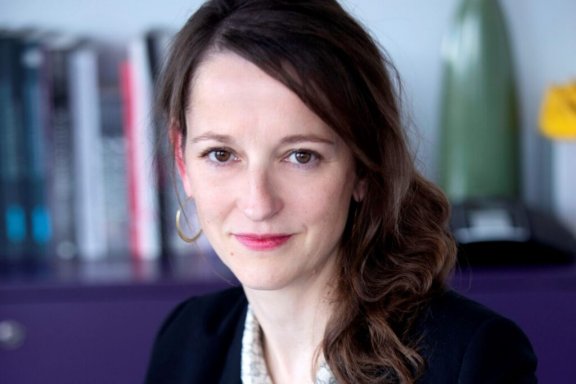6.10 > 8.12.22
CN D à Pantin
Oct. 6
Conversation with Yael Davids - EN
Yael Davids was born in 1968 in Kibbutz Tzuba (Jerusalem) and lives and works in Amsterdam.
Yael Davids works with the human body as object, space and architecture to expose issues of social violence. She approaches it as a 'documentary vessel' in relation to collective heritage, political narratives and autobiography. Composed of performative, sculptural and archival elements, her works often take the form of choreographic assemblages informed by minimal art and postmodern dance. Inspired by Dr. Moshe Feldenkrais, Davids experiments with somatic learning and alternative systems of knowledge transfer and production. She adapts the potential of this holistic technique to the experience of art. She invites visitors not only to "see" art, but also to find another way to access it through the body and carefully executed movement sequences.
Nov. 24
Conversation with Gisèle Vienne - FR
Born in 1976 in Grenoble, she lives and works in Paris.
Gisèle Vienne defines herself as a choreographer, puppeteer, director, visual artist and filmmaker. The place and format she most often invests are those of the stage, but the status of her pieces always remains undecided. Her "theatre" - in which the performance device is sometimes reduced to its most minimal state - summons everything that cannot be seen or heard, to evoke the societal violence that is exerted on bodies. All of his work considers the body as a place for questioning our culturally constructed systems of perception, their critique and possible displacement. Through forms of collective rituals that borrow as much from the world of the party as from urban dance, she explores the bodies that are searching for themselves, the gestures that resist, the identities that dissolve.
Dec. 8
Conversation with Pauline Curnier Jardin - FR
Born in 1980 in Marseille, she lives and works in Berlin and Rome.
Pauline Curnier Jardin's eccentric films and performances revisit historical events or characters through symbolic or allegorical scenarios. Her carnivalesque tableaux feature non-professional actors (friends, inmates, prostitutes) in cardboard sets and stylised, partly improvised actions. They often evoke collective cathartic events: parades, parades, religious processions, and propose representations of protean bodies, based on a fantasy of metamorphosis not limited by normative rationalities. As much as fantastic figures, its protagonists could be described as political subjects, who carry the progressive promise of a transformation for all.
Thinking about what performance does to us rather than what it is: by focusing on its effects rather than on its principles, Julie Pellegrin wishes to etch out a politics of performance from a set of concrete practices. As Jon McKenzie said, the very notion of performance is paradoxical: it conveys both discipline and experiment, as well as both a neoliberal injunction which is but a vehicle of social control and a series of artistic practices which resist injunctions and control. How can this paradox be understood? Does performance as an aesthetic category mean what Fred Moten calls “nonperformance”, i.e. not a pure refusal to perform but a highly strategic refusal to perform according to the norms and rationalities imposed on it? Julie Pellegrin will try to answer these questions through conversations with three artists about their respective practices. How do their own strategies of refusal induce a crisis in systems of perception, domination and representation to open new political perspectives? How can they foster new ways of being and being together?
Julie Pellegrin is an art critic and curator who is interested in performativity in its broader meaning. For the past 20 years, she has been exploring the ways the connections between visual arts, choreography and theatricality have shaped how art exhibits are organized and presented. She is currently a fellow in the Académie de France à Rome-Villa Médicis, and is working on a book about the politics of performance, while researching the connections between artistic practices and anarchist theories.
